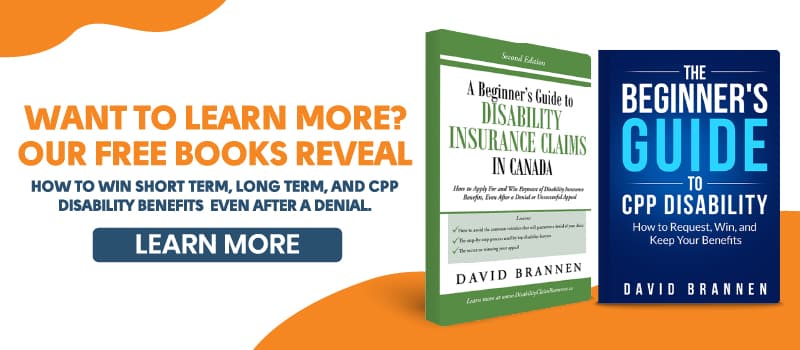When taking a sick leave to apply for disability benefits, it is important to understand your employment rights and obligations. You have a separate relationship with your employer from the disability insurance company. You and your employer have rights and obligations that operate apart from your disability claim. Your employment rights come from common employment standards and human rights laws.
The Employment Relationship
The relationship between employer and employee is governed by several laws, including the Common Law, Employment Standards Acts, Occupational Health & Safety Acts, Labour Relations Acts, Workers’ Compensation Acts, and Human Rights Acts. These laws have both provincial and federal versions.
The laws that govern your employer will directly affect what laws apply to you. If your employer is regulated by provincial laws, then the employment laws in your province will apply to your situation. If your employer is regulated by federal laws, then federal employment laws will apply to you.
All employment situations include both express and implied obligations. You can find the express obligations in your employment contract. Implied obligations refer to unwritten rules deemed to apply in all situations. These obligations still apply even if they are not written in the employment contract.
Your Employer’s Duties
The employer’s duties and obligations also come from the common law and statutes. Your employer’s obligations from common law include the duty to pay you for work done, the duty to provide work, a duty to provide a safe work environment, a duty to treat you fairly, and a duty to give you reasonable notice of termination.
Your employer’s statutory duties arise from Employment Standards Legislation, Occupational Health and Safety Legislation, and Human Rights Legislation. From the perspective of someone on disability leave, your employer’s important statutory duties include a duty to provide termination pay (with exceptions and limits), a duty to provide a work environment free of discrimination or harassment, a duty to allow you to take a sick leave, and a duty to accommodate your disability.
Your duties as the employee
As an employee, you also owe duties to your employer. These duties include:
- Getting to work on time;
- not participating in improper conduct (harassing other employees, drugs in the workplace, criminal acts);
- performing work competently;
- acting in good faith to the employer; and
- to give reasonable notice of resignation
As a person with a disability or as someone who needs a sick leave, you will be in a situation where you will not be able to attend work on time or perform your work competently. Violation of these duties would normally cause the employer to terminate your employment. However, there are special protections for people suffering from illness or disability. These protections arise from your employer’s duties to allow you to take a sick leave and to accommodate your disability.
Employment Rights and Disability Benefits: Termination of Employment for Employee on Disability Leave
With some limited exceptions, employers and employees have the right to terminate an employment contract at any time. Your employer can dismiss you from employment for almost any reason. You have the right to resign from your employment at any time and for any reason. However, your employment rights will depend on the situation. There are three types of employment dismissal scenarios:
- Dismissal without cause
- Dismissal for cause
- Dismissal for the frustration of contract
- Constructive dismissal
Dismissal without cause
You don’t have an inherent right to keep your job; no one does. Your employer can dismiss you from your job even if you have done nothing wrong and are a stellar employee. We call this kind of dismissal without cause. As long as your dismissal is not based on discrimination, your employer can dismiss you for any reason or none at all. Human rights laws prevent employers from dismissing employees based on protected grounds of discrimination, which include disability. Therefore, in the short term, your employer cannot dismiss you because of your disability. However, your employer has the right to dismiss you for other valid reasons.
If your employer dismisses you without cause, they must give you reasonable notice of termination. Reasonable notice refers to the number of days or months in advance you must be given before your job ends. The length of the reasonable notice period is determined by applying several factors. These factors can include age, length of employment, and the prospects of finding another job.
After the reasonable period is determined, your employer has the option to provide you with working notice. Or they can end your employment immediately and pay severance equal to the pay you would have received over the notice period.
Dismissal for cause
You do not always have the right to receive working notice or severance pay. Your employer could fire you immediately for cause if you engaged in certain types of misconduct. And you would have no right to working notice or severance pay. Your misconduct must be serious. It can include things like chronic absenteeism, incompetence, insubordination, sexual misconduct, harassment of co-workers, misrepresentation at hiring, negligence in performing your work, and off-duty conduct.
If you suffer from sickness or disability, you will likely experience chronic absenteeism and be unable to perform some or all of your work duties. While these issues normally cause your employer to terminate your employment, they cannot legally do so if sickness or disability are the reasons for your poor work performance. Under provincial and federal human rights laws, employees who become sick or disabled are protected from summary dismissal. Under human rights laws, your employer has a duty to accommodate your disability to the point of it causing undue hardship to the employer. Common accommodation is allowing the employee to take extended sick leave without fear of losing his or her job.
Dismissal for frustration of contract
While human rights laws protect your employment in the short term, your employer does not have to employ you indefinitely if you have been off work for a long time and there is no plan for return to your job in the immediate future. Courts have drawn a line between temporary illness and permanent disability when determining if employment has been frustrated. They will consider several factors, including the terms of the employment contract, how long employment would have lasted even if you weren’t sick, the nature of the employment, the period of employment, and how long your disability is expected to last.
Courts will consider all these factors to determine when and if an employment contract has become frustrated. People often cite two to four years as the period when employment becomes frustrated, but courts have rejected any arbitrary times like this. The period could be shorter or longer depending on the specific circumstances.
Potential Exceptions
Some judges have ruled that frustration of contract can’t happen in situations when a person is on an approved long-term disability claim. The thinking is that if the employment contract contemplated long-term disability, then it can’t be frustrated by the person receiving long-term disability benefits. This principle is an evolving area of the law and may not apply to you, even if you are on an approved disability claim. You would need to seek legal advice on whether the frustration of the contract would apply to you.
If your employment contract has become frustrated, your employment is deemed to end immediately. And you have no right to working notice or severance pay in place of working notice. However, there are some exceptions under provincial and federal employment standards legislation. You may still be entitled to limited severance pay through provincial and federal legislation, even if your employment has become frustrated.
Finally, if your employment contract has not been frustrated, then you have a right to the same reasonable notice as any other employee, even though you are on sick leave. This means your employer must give you working notice or pay severance in place of working notice. Your employer has a duty to prove that your employment has become frustrated. This is often no easy task. So, many employers will opt to pay severance as a way to end their employment.
Constructive dismissal
Constructive dismissal happens when you technically remain employed, but the employer has changed your employment in such a fundamental way it amounts to a dismissal. In these situations, an employee can treat the employee as having ended; and they will be owed reasonable notice of termination, either as working notice or pay in place of working notice.
Want to learn more about your employment rights and disability benefits? Check out our article on Long-term Disability and Termination of Employment.
Enforcing Your Rights as an Employee on Sick Leave
If your employer has not met its obligations, there are several ways for you to enforce your rights. These include employment standards boards, human rights commissions, arbitration, and courts.
Employment standards boards
If your employer has violated its obligations under provincial or federal employment standards legislation, you have the right to file a complaint with the provincial or federal employment standards board. They will review your complaint and attempt to negotiate a settlement between you and your employer. The process before employment standards boards can include mediation and eventually a hearing before the board. If you can’t reach an agreement with your employer, the board will issue a ruling on your situation that applies to both you and your employer.
The commission will assign an officer to review your complaint. The officer may arrange a mediation between you and your employer. If the mediation fails, then your case will go to the human rights tribunal. This specialized court hears human rights cases and issues decisions binding on employees and employers.
Human rights commissions and tribunals
If you believe your employer discriminated against you based on your disability, then you can file a complaint with the applicable human rights commission. People who work for provincially regulated workplaces should contact the human rights commission in their province. However, employees who work for federally regulated employers should file through the Canadian Human Rights Commission.
Civil litigation
People could sue their employer for severance pay and other damages if they were wrongfully dismissed without reasonable notice of termination. You can start this process by filing a lawsuit with the courts in your province. You would then negotiate with your employer during the court process and possibly reach an out-of-court settlement. If there is no settlement, your case will go before a judge who will make a decision on whether you are owed payment from the employer and, if so, how much. However, not everyone has the right to sue their employer. For instance, workers who are under a collective agreement or arbitration requirement can’t sue their employers.
Arbitration
Some employment contracts include arbitration clauses. These clauses require the employee and employer to settle all disputes between one another through arbitration — rather than the courts. If your contract includes an arbitration clause, then you would make your claims for wrongful dismissal through an arbitration process. The arbitrator is usually an independent lawyer who does not represent either side. He or she would try to facilitate a settlement, eventually act as a judge, and make a final decision that is binding on you and your employer.
Collective agreement / unions
If your job is governed by a collective agreement, then you likely do not have the right to file a lawsuit against your employer. If you feel you were improperly dismissed from employment, you would have to follow the grievance process set out in your collective agreement. You should speak with your union for advice on how to start the grievance process.
Final Thoughts
We hope this article helped you understand your employment rights while on disability benefits a bit better. If you have any other questions about this article or your claim don’t hestitate to contact us. Call us toll-free at 888-732-0470 to book your free consulatation today.
Free Books
Learn more about employment rights and disability benefits in our free guides.



